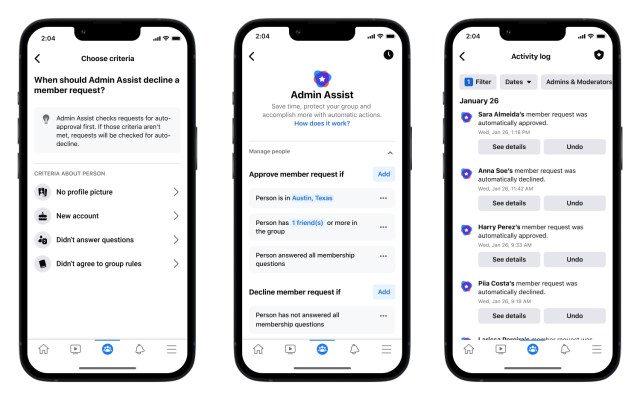VC and native Ukrainian Alex Iskold is funneling money to Ukranian refugees, $1K at a time – TechCrunch
Alex Iskold is “one of the luckiest people you’ve ever met,” he says from his office in New York. He’s the co-founder and managing partner of a venture firm, 2048 Ventures. He previously spent five years with Techstars as the managing director of its New York City program, where he invested in and helped more than 100 startups.
Iskold has also cultivated a vast network of contacts — contacts that he is putting to use for the second time in two years. The first time, Iskold and fellow VC Minda Brusse called on these friends and acquaintances to fund families in need during the pandemic, forming a kind of human blockchain, as The New York Times described it. According to Iskold, the effort ultimately spread $3 million to roughly 1,000 families, he says.
Now, Iskold is reviving that earlier operation, dubbed the 1K Project, to provide much-needed help to Ukrainian refugees who’ve fled the country, as well as families that remain trapped in the country, are suddenly jobless and, in a growing number of cases, no longer have a place to call home.
“I never thought I would have to restart the 1K Project, but as soon as I realized what [Russia’s invasion of Ukraine] would mean,” he started making calls, he says.
Like many people, Iskold is horrified by a war that, one month ago was hard to imagine yet has already displaced more than 2 million people and caused more than $100 billion in damage. But it’s also personal. Iskold is Ukrainian. He spent the first 19 years of his life in the country, and he still has many cousins and friends and acquaintances there. Indeed, he says a third cousin and her family escaped almost immediately after Russian troops entered the country, while desperate others have stayed because they have sons and husbands who are between the ages of 18 and 60 and thus forbidden from leaving the country.
Iskold’s network has been quick to heed the call for help. Since tweeting out the news 11 days ago that he was resuscitating the 1K Project to funnel money to Ukrainians, a network of 30 volunteers, from developers to data analysts, has sprung into action to spread the word and ease the path to helping sponsor and recipients reach each other.
As Iskold explains it, “The most powerful thing we’ve built is a distributed network [that quickly enables] sponsors and families to apply. Interested parties can find the forms on our site. There is a lightweight vetting process for sponsors and more strict vetting process for recipients. But once the sponsor and the family are approved, they get matched, and the sponsor is texted or emailed directions on how to fund the family through [the only money transfer service] Wise.com.”
The donations, made in $1,000 increments, are not tax deductible. For those who want to donate larger amounts and to receive a tax credit for them, Iskold says the group is using an outfit called OpenCollective.com as its fiscal sponsor. (To donate to five or more families, for example, 1K Project will send someone instructions on how to donate to OpenCollective; it will then dispatch the money to the families through that vehicle.)
More volunteers — and donors — are needed. 1K Project — which Iskold describes as “razor focused on helping families who have three-plus children,” including women who are either in the war zone or who are otherwise displaced with their children — already has more demand than it can meet. “We have a ranking algorithm and we’re shortly going to fund 1,200 families,” he says. “But we have 12,000 applicants and we can’t fund everybody; we just don’t have enough.”
As for how the money is being deployed, there are “so many use cases,” says Iskold, who credits the Ukranian banking system for continuing to function in the face of complete chaos.
Some families have used the funds to move to safer parts of the country, he notes; others who are already outside of Ukraine are using it buy food for their children.
In all cases, the families are in highly distressed situations, he says. “We’ve heard from a bunch of families where they’re sitting on their couch one day and the next day, the bombs completely blew away their homes and they have nowhere to live and they need to figure out how to get out of that place with [not much more] than a T-shirt.”
The stories pain him. “I’m getting thank-you messages and constantly crying,” he says. Worse, he knows there’s only so much that his sprawling and eager network can do. “There is just a ton of problems that we’re hearing about that we’re not able to help with, like ammunition for the army or medical supplies.”
In the midst of everything else, he worries about people he knows, particularly when they become hard to track. “You know how you see green dot [on your smartphone] and then sometimes you don’t?”
He is meanwhile doing what he can — and seemingly making a dent. Since spinning up the 1K Project anew, people have donated $1 million to more than 800 families, help that is “exceptionally helpful for refugees” who’ve left everything behind in a flash.
Alas, that need looks poised to balloon. “If families are displaced within Ukraine and lucky enough to get into refugee centers,” says Iskold, “a lot of stuff is taken care for them. If they’re not in refugee centers, they need food, they need help.”



